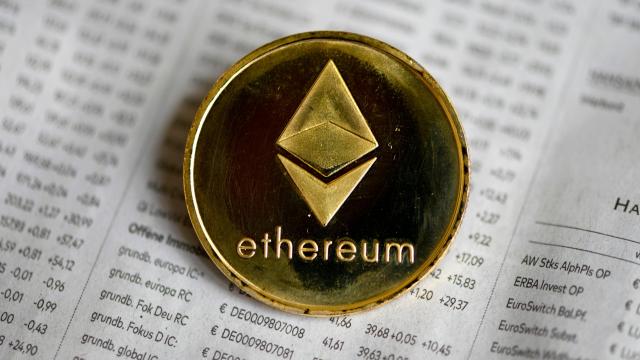Ethereum is closer than it’s ever been to ditching its highly energy intensive proof-of-work model for a proof-of-stake (POS) alternative.
This week, Ethereum ran its final test of the new POS system before it’s set to officially transition next month. The move, once completed, could mark a seismic shift for the crypto industry which has continually had to brush off justified claims, including some made on this website, that cryptocurrencies are an inherent strain on the environment.
The test, first reported on by CNBC, is one of the last checkmarks on the to-do list before the so-called “Merge” takes effect.
As a quick refresher, POS advocates, climate researchers and others have pushed Ethereum to transition away from POW due to its heavy reliance on energy for mining. Though there was a time when Bitcoin and Ethereum users could simply mine the currencies using the computers in their bedroom, that time has long passed. Now, Bitcoin reportedly requires over 200 terawatts of power per year to solve the complex maths problems necessary to mine currency and verify transactions. That’s equivalent to the energy consumption of many small countries.
POS, on the other hand, should theoretically dramatically reduce energy consumption by using other Ethereum user’s machines to verify blocks on the blockchain. As Investopedia puts it, Ethereum owners “offer their coins as collateral” to validate blocks. These so-called “validators” are then randomly selected to confirm that each transaction made on the blockchain is reliable. The upshot here, according to supporters of the Merge, is that proof-of-stake mining will use 99% less energy consumption than proof-of-work models.
During this week’s tests, CNBC notes, Ethereum’s Goerli test network conducted a simulation mimicking what will happen when the merge occurs next month. Though the test wasn’t without some hiccups, multiple cryptocurrency researchers, including Ansgar Dietrichs of The Ethereum Foundation described the event a “successful test.” Ether, the coin attached to Ethereum, bumped up its value by 11% on Thursday following the tests according to Markets Insider.
pandas on the screen! pic.twitter.com/0nYll6gImH
— timbeiko.eth (@TimBeiko) August 11, 2022
The POS switch has been in the works for several years (Ethereum co-founder Vitalik Buterin wrote about the idea as early as 2013), but only recently received a hard date earlier this year. That date, though still somewhat tentative, is Sept. 19.
If all goes according to plan and Ethereum’s success switches to POS on that date, the environmental issues surrounding cryptocurrency won’t suddenly dissolve away. Bitcoin, the leading cryptocurrency, still relies on POW, something that’s not likely to change, and countless other smaller proof-of-work coins also exist. That said, Ethereum’s the second largest blockchain so an energy consumption reduction that comes even close to what POS advocates would mark an important, consequential shift.
